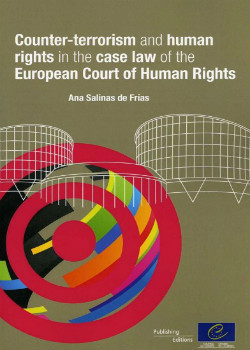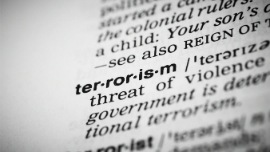Combating terrorism
Terrorism constitutes a real threat to democracy, the rule of law and the enjoyment of human rights. As such it must be countered through prevention and suppression by the member States of the Council of Europe. However, poorly implemented or overly Draconian counter-terrorism measures can be counterproductive. While law enforcement operations aimed at terrorists are necessary and justified, counter-terrorism measures should not go beyond what is necessary to maintain peace and security, nor should they subvert the rule of law and democracy in the cause of trying to save it.
Our approach
For over forty years, the Council of Europe has helped to develop and reinforce key legal standards to prevent and suppress acts of terrorism. Taking a comprehensive approach, the Council of Europe works to help member States fight terrorism more effectively by strengthening and improving their national legislation, as well as facilitate international co-operation. In full respect for human rights and the rule of law, the Council of Europe is continuously working to improve international co-operation in bringing terrorists to justice.
The Council of Europe Committee on Counter-Terrorism (CDCT) (formerly called the Committee of Experts on Terrorism (CODEXTER) is the key coordinating body for the Council of Europe activities to combat terrorism. Building on the pioneering work of the CODEXTER, the CDCT’s primary objectives are to oversee and ensure the successful implementation of relevant Council of Europe legal instruments while also providing a means for international experts to analyse and respond to developments in the counter-terrorism area, including through international standard-setting.
Our Instruments
The Council of Europe’s main international legal instrument in the counter-terrorism field is the 2005 Warsaw Convention on the Prevention of Terrorism and the Additional Protocol to the Convention on the Prevention of Terrorism . The two provide criminalisation of a number of terrorist activities, including taking part in an association or group for the purposes of terrorism, receiving terrorist training, travelling abroad for the purposes of terrorism and financing or organising travel for this purpose. They moreover envisage development of national prevention policies, international cooperation on prevention and criminal matters, liability of legal entities and main principles regarding sanctions. In addition to the two treaties, the Council of Europe counter-terrorism framework also entails a number of issue -specific recommendations and guidelines that provide member States guidance for introducing issue-specific prevention, enforcement or adjudication tools. These include Recommendation CM/Rec(2022)8 on the use of information collected in conflict zones as evidence in criminal proceedings related to terrorist offences and Guidelines on the links between terrorism and transnational organised crime.
These binding and non-binding standards form part of the overarching Council of Europe counter-terrorism policy elaborated in the Council of Europe Counter-Terrorism Strategies. The first Counter-Terrorism Strategy was adopted in 2018 for the period of five years. It has recently been superseded with the second Counter-Terrorism Strategy to be implemented from 2023 to 2027.
Other Activities
The Council of Europe is also currently developing means to facilitate more effective action against transnational organised crime (see the White Paper on Transnational Organised Crime) and the sharing of best practices and common approaches that are useful in the struggle against both organised crime and terrorist activity (see Malaga Conference).
The Council of Europe’s #NoHateNoFear campaign was aimed at online hate speech conducive to terrorism and violent extremism.
The Council of Europe Commissioner for Human Rights Issue Paper on Democratic and Effective Oversight of National Security Services is also available online in several official languages.
Counter-terrorism and human rights

Counter-terrorism and human rights in the case-law of the European Court of Human Rights is a handbook on counter-terrorism with a special focus on due respect for human rights and rule of law. It compiles the doctrine laid down by the European Court of Human Rights in this field with a view to facilitating the task of adjudicators, legal officers, lawyers, international IGOs, NGOs, policy makers, researchers, victims and all those committed to fighting this scourge.
The book presents a careful analysis of this body of case law and the general principles applicable to the fight against terrorism resulting from each particular case. It also includes a compendium of the main cases dealt with by the Strasbourg Court in this field and will prove to be a most useful guiding tool in the sensitive area of counter-terrorism and human rights (See Online bookshop).
Useful links
Previous meetings
12th CDCT Plenary meeting, 13-14 May 2024 - List of decisions
11th CDCT Plenary meeting, 11-13 December 2023 - List of decisions
10th CDCT Plenary meeting, 23-25 May 2023 - List of decisions




